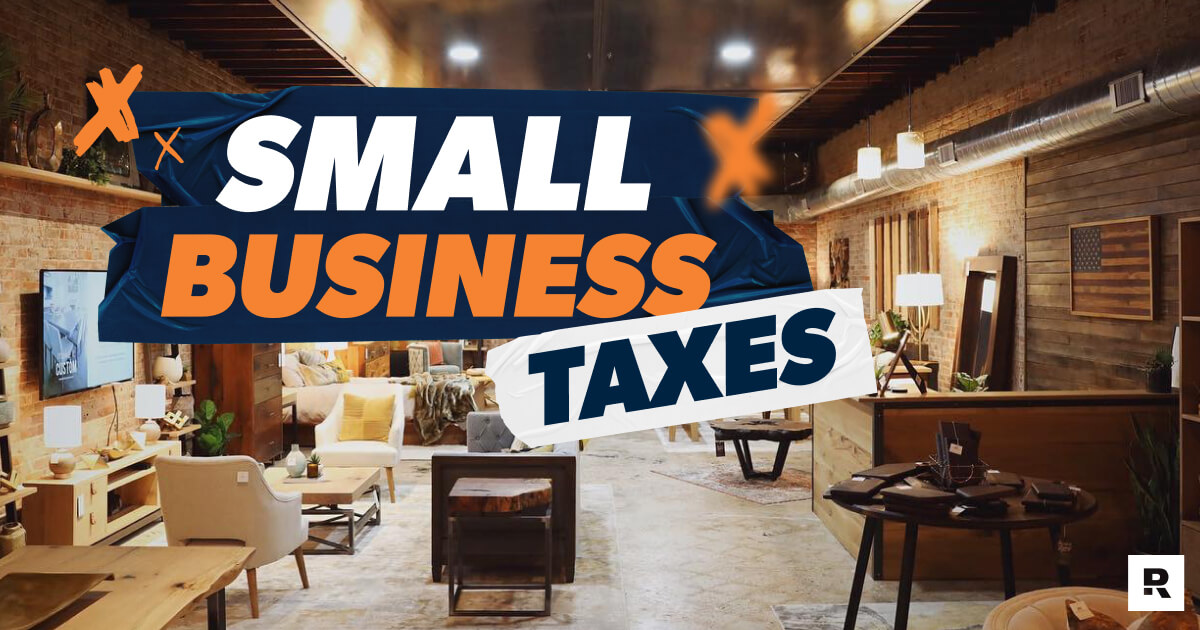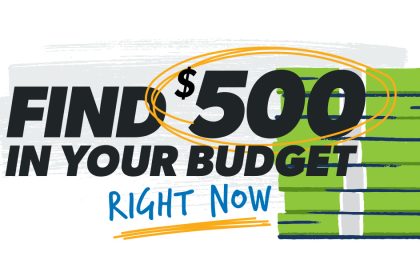Did you ever wonder why taxes are so often mentioned in the same sentence as death? They’re both unpleasant, and you can’t, in the end, avoid either of them. But that doesn’t have to get you down! Your business is killing it and your customers are being served. You just need to keep Uncle Sam and the KGB—oops . . . the IRS—off your back. And to do that, you need to know about taxes on small businesses.
Before we get started, let’s define the term business tax. A business tax is just what it sounds like: a tax on business income. Pretty straightforward so far, right? Now, let’s talk about the types of business taxes that apply to small-business owners.
Types of Small-Business Taxes
How you set up your business—as a C corporation, sole proprietorship, etc.—will determine which taxes you pay and how you pay them.1 There are a bunch of small-business taxes to know about, and it can feel pretty complicated (especially with all the IRS lingo). So, to save you time and stress, let’s walk through it all together in plain English.
1. Income Taxes
All businesses must file an annual income tax return. C corporations pay income tax at the corporate rate, while all other businesses are considered pass-through entities and are taxed at the individual rate (we’ll dig in on these in a minute).
2. Estimated Taxes
Freelancers, independent contractors and small-business owners who expect to owe at least $1,000 in taxes need to estimate and pay quarterly taxes. If you don’t pay them, or don’t pay enough, you can be hit with penalties and interest and open yourself up to all kinds of unpleasantness. So, you need to be sure that you know the due dates and the payment period for the estimated payments.2
|
When You Get Paid |
Tax Due Date |
|
Jan. 1–March 31 |
April 15 |
|
April 1–May 31 |
June 15 |
|
June 1–Aug. 31 |
September 15 |
|
Sept. 1–Dec. 31 |
January 15 of the following year |
We recommend setting aside 25–30% of your income to pay these taxes. This way, you’re not hit with a massive, unexpected—and let’s just say it, annoying—bill at the end of the tax year.
Don’t learn this lesson the hard way. Plan now!
3. Self-Employment Taxes
Working for yourself is all fun and games until Uncle Sam barges into your home office. That’s right, the IRS has created a tax just for you—aren’t you special? Luckily, if you plan for it, you’ll be okay.
People who are self-employed have to pay self-employment taxes, which cover Social Security and Medicare taxes. The self-employment tax rate is 15.3%, which consists of two parts: 12.4% for Social Security (old-age, survivors, and disability insurance) and 2.9% for Medicare (hospital insurance).3
You must pay self-employment taxes if:
- Your net earnings are $400 or more
- You work for a church or a qualified church-controlled organization that elected an exemption from Social Security and Medicare taxes, and you make $108.28 or more in wages. This does not apply to ministers or members of a religious order (such as nuns).
4. Employment Taxes
If you have employees, you have to pay employment taxes, which include:
- Social Security and Medicare taxes
- Federal income tax withholdings (this is technically paid by your employee, but you’re responsible for making sure Uncle Sam gets it)
- Federal unemployment (FUTA) tax
5. State and Local Taxes
Depending on where you live, you may also have to pay state and local taxes. The types and amounts of taxes you’ll pay are different depending on your location. This is where a tax pro can really come in handy. Our small-business tax pros focus on the local. They live in your community and can guide you through complex state, county or city tax laws.
6. Excise Taxes
Depending on your business type, you might have to plan for excise taxes. These are taxes imposed on the manufacturing or selling of specific goods. Excise taxes are often called sin taxes because the items on this list have a reputation for being potentially bad for people or society.
Got small business tax questions? RamseyTrusted tax pros are an extension of your business.
A few examples of these goods include:
- Heavy-duty trucks and vehicles
- Alcohol and tobacco
- Candy and fast food
7. Property Taxes
If you own property as a small-business owner, you’ll have to pay property taxes. These taxes are typically assessed at a county or city level.
8. Sales and Use Taxes
If you sell things, you’ll be responsible for collecting sales taxes. If you sell things online, this can get complicated, because some states charge based on where the seller is located, while other states charge taxes based on where the buyer is located.
What Is the Business Tax Rate for 2024?
Now that we know what kinds of taxes businesses pay, what are the rates? Well, it depends on how you set your business up. There are basically two ways of doing this.
1. Business Tax Rate for C Corporations
This one is easy-peasy (sort of). The Tax Cuts and Jobs Act of 2018—aka the tax reform bill—cut the income tax rate to a flat 21% for all businesses that are set up as C corporations. Simple enough, right?
Keep in mind that if the corporation pays dividends, shareholders must pay taxes on their personal tax returns. In this case, C corporation profits are taxed twice. (Boo!)
2. Business Tax Rate for Pass-Through Entities
The tax rate for pass-through entities is the same as the owner’s personal income tax rate.4 If your small-business falls into any of the types listed below, you’re considered a pass-through entity.
- Sole Proprietorship
- Partnership (Limited and Limited Liability)
- Limited Liability Company (LLC)
- S Corporation
There’s also an alternative minimum tax (AMT). But this tax only applies to certain high-income owners. The AMT basically limits some of the tax breaks they get. This makes sure they at least pay a minimum amount of income taxes.5
What Is an Employer Identification Number (EIN)?
An employer identification number (EIN) is also referred to as a federal tax identification number. Essentially, this number is used by the federal government to identify a business entity. There are certain qualifications your business must meet to require an EIN.
If you answer yes to any of the following questions from the IRS, you should apply for an EIN.6
- Do you have employees?
- Do you operate your business as a corporation or a partnership?
- Do you file any of these tax returns: Employment, Excise, or Alcohol, Tobacco and Firearms?
- Do you withhold taxes on income, other than wages, paid to a non-resident alien?
- Do you have a Keogh plan?
- Are you involved with any of the following types of organizations?
- Trusts, IRAs, Exempt Organization Business Income Tax Returns
- Estates
- Real estate mortgage investment conduits
- Farmers’ cooperatives
- Plan administrators
Small-Business Tax Deductions
Now that you know all about the types of taxes you might have to pay, you’d probably like to hear about your tax breaks, right? Fortunately, there are many small-business tax deductions (or tax write-offs). Deciding which ones are right for your company can be a lot to figure out. And unfortunately, the IRS isn’t a lot of help on this since they don’t provide a clear list of small-business deductions you can refer to. (What else is new?) But we can make a few assumptions based on their definition.
What Is a Business Tax Deduction?
The IRS says a tax deduction is any expense that’s “ordinary and necessary” to running your business. Products or services your business pays for that are necessary for the survival of your business fall into this category.
Examples of Tax Deductions
Okay. So, what exactly does “ordinary and necessary” actually mean? Here are examples of common tax deductions for small businesses to get you started.
- Home offices and supplies
- Utilities
- Commercial rent
- Marketing and advertising
- Business travel
- Salaries and employee benefits
These are just a few potential expenses you can write off this year. But keep in mind that every industry has its own unique expenses and deductions. That’s where things get confusing. Luckily, our RamseyTrusted® tax pros can help you decide which deductions are right for you.
Energy Tax Incentives
The federal government offers special tax incentives for businesses that use sustainable energy sources in their daily operations.7 You should definitely learn about these tax breaks—they often have cash rebates and other financial perks.
For example, if you plan to or have had solar panels installed on your commercial property this year, you might qualify for the solar investment tax credit (ITC). This credit helps offset the cost of solar panel installation through a dollar-for-dollar reduction on your income tax bill.
The percentage currently sits at 30% for the 2024 tax year, and it’s good for installations that began construction in 2022 or 2023.8 So, if you spend $10,000 on solar panels, you’ll get $3,000 (30%) knocked off your next tax bill. Cha-ching!
One of our tax experts can help you figure out which energy incentives your business might qualify for. (Noticing a theme here?) Don’t leave money in the IRS’s hands—trust us, they don’t need it.
Someone Who Can Help You With Your Taxes
We don’t have to tell you that business taxes are a time-sucking hassle. You could spend those hours serving your customers, developing your team, or, well, literally anything else that you feel is a more productive use of your time!
Our RamseyTrusted small-business tax pros are there to help advise you and guide you through any tax questions you might have. They can help you file your returns and maximize your deductions. And they’re part of our RamseyTrusted program, so you know they’ll be able to take care of your federal, state and local taxes.
Find your tax pro today.
Read the full article here


















